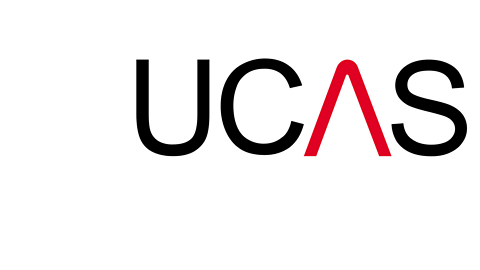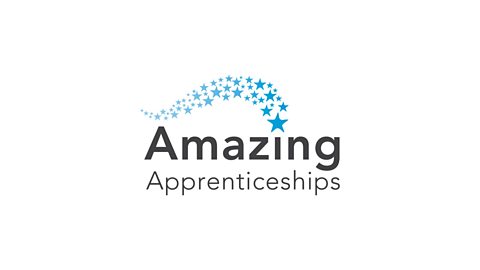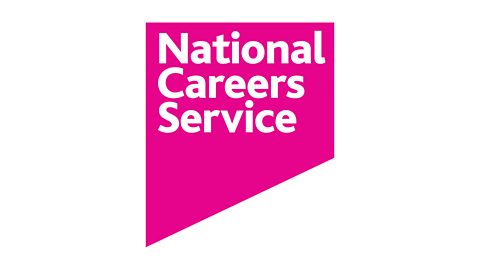What is a CV?

Whether you’re applying for a full-time job, a summer job, work experience or an apprenticeship, you’ll often need to share a CV with the company or business who wants to hire you.
A CV is a document that includes information about yourself and why you’re a good fit for the role. It presents your skills and qualifications effectively and clearly.
Writing a CV is a skill, but a good one can help you stand out from the crowd.
In this CV Toolkit, we’ll take you through everything you need to know and help you make a great first impression.

The basics
CV stands for curriculum vitae. That’s Latin for your ‘course of life’ and that’s basically what the document does. It tells people who you are and what you’ve done up to the point of applying. You’ll also see it called a résumé.
What should your CV include?
- Name
- Contact details
- Personal profile
- Key skills
- Education
- Work experience
- References
- Hobbies and interests/achievements.
You DO NOT need to include your age, date of birth, nationality or whether you’re married. Employers shouldn’t consider those things when deciding to offer you an interview. You also don’t need to include a photo.
Only include your social media handles if they are relevant and professional. If you use social media as a portfolio and that's important for the role you're applying for then it's a good thing to include.
What should your CV look like?
There’s no need to try and stand out with jazzy fonts and fluorescent paper. Your CV should be clear and easy to read.
Your CV should:
- Be no longer than two pages
- Use an easy-to-read font like Arial or New Times Roman. The font should be black and sized between 10-12
- Use headings and bullet points. Keep the layout simple and make it easy to read
- Use plain language.
If you're sending your CV as an e-mail, you should name the file something relevant to the employer, not to you. So "James Bond - Secret Agent Role" not "MI6 CV - V007".
How to write a personal profile

Your personal profile is a few lines about who you are and why you’re right for the job. You get to shout about your skills, interests, and career goals.
This section should be brief. There are other parts of the application where you can go into some more detail, like the cover letter. The personal profile is more like an elevator pitch. If you had one minute to “sell” yourself for the role, what would you say?
It’s a good idea to tailor this to the job you’re applying for. You can look at the job description and highlight any skills that match what the employer is looking for.
The key to this is to talk about transferable skills. It’s very likely you won’t have done the exact tasks the job you’re applying for requires, but you can still mention skills you have developed that make you a good fit.
These could be technical skills, like software you know how to use, or more general skills like problem solving, creativity and staying calm under pressure. These are known as hard and soft skills.

How to write your key skills section
A key skills section on your CV is a quick and easy way to show employers you’ve got what it takes to do the job.
There’s no need to go into too much detail here. You simply need to list your key skills with words and phrases that describe what you can do. These could be soft skills, that can be used in almost any job such as “highly organised”, or hard skills, which are usually specific to the job like "graphic design".

This section should go near the top of your CV so the reader knows your skillset from the off.
In practice, it will look something like this:
- Problem solving
- Time management
- Active listening
- Attention to detail
- Photo editing for social media
- Research.
The skills you list should be relevant. Make sure you read the job description carefully and make note of any requirements for the role. For example, you don't need to highlight IT skills if you'll never sit at a computer.
You can also do some research about similar jobs online and see what skills might be useful. If you think you can demonstrate that you have those skills, then add them to your CV.
Take a look at this article to help identify skills you might not know you had.
AI is reading your CV
Some employers use automated systems to filter CVs. These systems read and rate candidates, often using AI, before a human ever looks at the document. If a job you’re applying for is using one of these then your key skills section is especially useful. The system is scanning for key skills so make them easy to find.
We’ll look at how to identify and talk about your skills later in this toolkit.

How to write your education section

Here, you will list out your formal education history. Start with the most recent and work your way backwards. Employers don’t need to see anything before secondary school so this section may be short for you.
Here’s what you should include:
- Qualifications
- The school, college, or university you attended
- The dates you attended.
You can also use this section to mention any other training or abilities you have such as:
- Knowledge of any other languages, including sign language
- Any software tools you know how to use
- First aid training
- Academic awards or scholarships
- Duke of Edinburgh awards.
The education section is simple and factual. If you don’t have much/any work experience, then your education history should appear below your introduction. If you have some work experience then add that section first.

How to write your work experience section

Here, you can include any work experience you have. This might include paid work, volunteering, or work placements. Begin with your most recent experience and work backwards.
Here’s what you should include:
- Employer
- Job title
- When you worked there
- What you did there.
Your experience can show reliability, mindset and transferable skills, even if it’s not specific to the job role you’re applying for. When talking about what you did there, try to highlight achievements and demonstrate the skills that your new role would require.
Remember, you can include any work experience you've done through school. If you don't have any work experience yet then focus on your key skills and interests section.

How to add references to your CV
Most employers will ask for a reference to find out about your previous experience.
Ideally the reference will come from someone who knows you well and can provide positive feedback about you. A previous manager or trainer is perfect.
If you don’t yet have any work experience, you can also ask:
- A teacher
- A leader of a sports team or volunteer group
- Someone respected in your community.
If you have permission, you can add these to your CV but you don’t need to. The employer will ask for your references either way.
Make sure to ask for permission before sharing any references' contact details.
Optional: How to write about your interests in your CV
Beyond the basics, there are other sections you can include in your CV if you want to communicate other skills or tell employers more about you.
These are optional. There’s no need to try and cram in everything there is to know about you into two pages. You want your CV to be as clear and easy to read as possible. You only need to include them if they are adding something.
They can be useful if you don’t have any work experience or if you want to introduce skills that you don’t have formal training or experience in.
Hobbies and interests

It’s common to include a section on your CV that talks about relevant hobbies and interests. This can be a great way to personalise an application and point towards your broader skillset.
There are lots of things that can go in this section, such as:
- Travelling
- Musical instruments (and what grade you've reached)
- Local sports teams you play for
- Any artistic interests (like photography)
- Volunteering
- Clubs you belong to
- Charity work.
Be specific. Where do you volunteer? Do you have a role in any of your clubs? If you love running, is it road or cross-country?
You don’t need to include things like “hanging out with friends” or "gaming" in your hobbies section. This doesn’t tell your employer anything about you and just takes up valuable space.
Only put things that are genuine interests in this section. You may be tempted to add things that you think the employer wants to hear but you’re better off only including things you feel confident about. There’s no point saying you love rock climbing in your CV, only to say you’re afraid of heights in the interview.
Check out this video to see how activities outside of work can put you a step ahead.
Achievements or accomplishments
Another way to talk about your interests is to list some key accomplishments within work, education, or everyday life. These can be large or small, but they will demonstrate work ethic and should communicate something about the kind of person you are.
It may look like this:
- Young Angler - Club president
- Head boy/girl
- First-aid trained
- Proficient in Makaton
- Won first prize at Anywhere Arts festival
- Completed a sponsored swim.
You could also mention other extra-curricular activities at your school or in your community that you've taken part in. If you've helped out at open evenings, sports tournaments or local events then feel free to mention them. They can show skills like organisation and trustworthiness.
The things you do outside of the school environment can really set you apart. They can show commitment, a desire to keep improving and the ability to work towards your goals.

What are my skills?
When employers read your CV, they’re looking for things that will show that you can do the job well. This might be technical knowledge that’s necessary for the work, evidence that you’re good with people or simply signs that you have a strong work ethic.
You can break all these things down into different skills. You may be able to rub your belly and pat your head at the same time, but this is unlikely to be useful to an employer. A good skill for your CV tells the employer something about what you can bring to the job.
What kind of skills do employers want?

You’ll sometimes hear skills divided into soft skills and hard skills.
Hard skills are usually technical and specific to the job. You may need special training or education to be able to do them. They include:
- Video creation
- Copywriting
- Software skills
- Foreign languages
- Social media.
Soft skills are more general but no less sought after. They are often social or interpersonal. These are developed at home, in education and at work. They are usually transferable skills that can be applied to almost any job. They include:
- Communication
- Problem solving
- Leadership
- Time management
- Teamwork.
This doesn’t mean that hard skills are difficult and soft skills are easy. Employers value both and you’ll want to develop a mixture of the two.
You may not have any work experience yet, but you can still develop your skills through extra curricular activities and volunteering. This will make your CV more interesting and appealing to employers.
You’d be surprised how many skills you already have. Some things that seem to come naturally to us are valued by employers. Focus on finding ways to highlight those things.

Test your knowledge of skills
How to write an engaging CV
There are different opinions on the most effective style to use in a CV. It’s essentially a piece of persuasive writing so a lot depends on the readers’ preference.
That being said, there are always things you can do to make your writing more readable, and your profile stand out.
Do you prefer reading huge blocks of text or short, snappy sentences?
Do you like wading throo spellng mistakes?
Do you like it when a writer takes a really, really, really, really long time to get to the point?

You already know what you like. Most good writing is just good sense. But here's some tried-and-tested tips to make your CV more readable and engaging.
- Start your sentences with an active verb e.g. “Took cash payments…” “Wrote a short story…”
- If you’re still working in a role, write in the present tense e.g. "I work…". If it’s a previous role, write in the past tense e.g. "I worked…"
- Use headings and bullet points to guide the reader through your CV
- Use a simple and clear font like Arial or Times New Roman
- Your CV can be written in third person or first person. Just make sure you keep it the same throughout
- Ask someone you trust to read your CV and double check your grammar and spelling.
Take a step back and imagine reading your CV for the first time. You could also try recording yourself reading it aloud and listen back to it. What do you learn about the person? Would you hire them?

Example CV
Let's look at all this in action.
You can apply this advice to anybody and any job, from superheroes to supermarket cashiers. If you're struggling to see the wood for the trees, let's head to Sherwood forest.
Here's what the CV for Robin Hood might look like. Take a look and see how each element we've talked about works on the page. You can apply this same format to your own CV using our template in the next section.
CV template
If you're less confident structuring your CV on the page, you can use the customisable template below to help you.
Feel free to practise using this template with the challenge below.
Challenge: Write a fictional CV
Sometimes writing about ourselves feels strange. It can often be easier to write about someone else. Have a go at this challenge to put your CV knowledge into practice.
Think about your favourite fictional character. Someone that you know a lot about. It doesn’t matter who it is; this is just for you.
Now, imagine that character is applying for a job today. Maybe Spiderman needs some part-time work while he’s at college, or Dracula’s looking for a more ethical career choice.
Write up a CV for your character using the sections we’ve outlined in the toolkit.
- Name
- Contact details
- Personal profile
- Key skills
- Education
- Work experience
- Hobbies and interests/achievements.
Have fun with it. If you don’t know something, then make it up. The idea is just to write a fun CV for your favourite character.
Test your CV knowledge!
Writing your own CV
Now that you know what makes up a great CV, you can start to tackle your own.
Whether you’re applying for your first job, looking for work experience or seeking an apprenticeship, you can use this toolkit to write a CV that makes you stand out from the crowd.

Remember the skills you outlined earlier in the toolkit. Use the personal profile, key skills and experience section to mention the important ones.
Include:

Top tips: CVs, cover letters and personal statements
Whether you’re applying for a job, a scholarship or to get into your dream university course, writing a cover letter and CV is a real art.
We’ve asked our experts to give us their top tips on how to put together a successful application.
In this short film, our experts explain what makes a CV and cover letter stand out.
"If you were writing a cover letter, the main thing I would say is it needs to be exciting enough to compel the reader to want to read more about you. So, if it’s applying for a job, they’ll need to want to look at your CV, having read your cover letter."
"Two key things to consider in that personal statement is why should we choose you as a student, and why do you want to study this course? So, you really need to think about your motivation. What’s inspired you to want to study this course?"
"It’s really easy on a cover letter or a CV to say, 'I’ve got excellent communication skills,' or, 'I’m a great team player.' But you have to back that up with real experience that you’ve got. So, it could be, 'I’ve got great communication skills, as evidenced by my time in the debating team,' or, 'I’m a great team player, as evidenced by my work experience or my part-time job.'"
"Employers want to see somebody who’s unique, somebody who’s different, so they want to see that come out either on paper in your CV or in an interview."
"It needs to be short, snappy and sweet, because they might be reading hundreds of these things."
"The days of the generic CV are over. You can’t write your CV, expect to hand it into 100 different jobs and expect that to work. You might get lucky, but the reality is now that employers are more demanding. So, yes, 75% of your CV will stay the same, it’ll be the education, work experience, your personal details. But the other 25%, which might be something like a personal profile, it might be a skills profile, it might be you changing, maybe, the subjects you’ve studied in school or what you learned within that, are the absolutely essential parts to making an effective CV. You need to speak to that employer and explain to them why you are ideal. And if you put a generic CV, it’s very hard to do that. Take the time to understand what the employer needs, then take the time to understand how you meet those skills, and you’ll be on to a winner."
CVs and applications: Top tips
- Make sure your cover letter is short and snappy – an employer will be reading hundreds of them, so if something’s not necessary, don’t include it
- A good cover letter will make the reader want to know more about you. It is, first and foremost, a good piece of writing that tells your story
- Employers want someone who’s different, with distinctive skills
- But different doesn’t always mean ‘quirky’! Think of the industry you want to work in: if you’re applying to work at a prestigious law firm, a colourful CV might not go down well!
- Generic CVs don’t work: they need to be tailored to the job you’re applying for
- While 75% of your CV (such as your personal details, education and work experience) will remain the same, the other 25% (for example: a personal statement, a key skills section or the more granular details about what you studied for a certain subject) needs to be relevant to that job
- Look at the job description and what the employer is looking for, and match that with your experience
- Give concrete examples. It’s easy to claim you’ve got excellent communication skills, but you need to back it up with evidence. Did you volunteer at a help line, or work in customer service? Or were you part of a debating team? Say it!
- If you’re applying for a place at uni, they will want to know: why should we choose you and why do you want to study this course?
- If you’re invited for an interview, your prospective tutors might ask you questions about books, films or anything else you may have mentioned in your personal statement – so don’t lie, and do your research!
- Of course, it goes without saying: spellcheck your application and make sure your grammar is impeccable.
Final thoughts

As you sit down to write or send your CV, you may find that you've still got some doubts.
This is entirely normal, so we've asked career coach Mark Anderson to give his hot take on some of the most common.
Mark is an award-winning career coach with over 20 years of experience supporting both adults and young people. Mark is dedicated to helping individuals make good decisions about their career and find fulfilment at work.

"I have no skills or experience. What do I write about?"
You may not have work experience, but you do have skills. Skills aren’t just things we learn on the job. We gain them in all sorts of ways, like school, extracurricular activities, hobbies, and volunteering.
For instance, if you've guided parents and students during an open day at your school, it highlights your communication skills and willingness to assist others. An exceptional attendance record shows reliability.
You can also ask people that you trust, parents or close friends, what they think your best skills are. Often, they recognise things in us that we can’t see for ourselves.
And remember, it's never too late to take part in activities that can enhance your CV in the future. So, if you’ve been thinking about volunteering, joining that new club or finally trying out that hobby, go for it!
"Writing about myself is cringe."
It can feel a bit embarrassing to write about yourself. You may not know how you’ll come across or worry that you’ll sound like you’re bragging.
Remember that your only job is to understand the skills that the employer needs and show that you have them. You’ll never be able to sum yourself up entirely, and you don’t need to, just tell them why you would be great for the job.
When you apply for a job, you’ll be sending your CV to someone who knows nothing about you, and yours will be alongside a bunch of others. If you don’t tell the employer who you are, who will?
It's a habit you'll develop throughout your career. Writing about yourself can boost your confidence as you reflect on your skills and achievements. It can also help you identify practical steps to make your CV even better in the future.
"I’ve written my CV. Now what?"
First of all, congrats! The hardest part is over. Now, carefully review your CV for any spelling or grammatical errors. If you have someone that can check it over for you, that’s even better.
Then ensure your CV is tailored to the job you're applying for. Double-check the job description and make sure you’re hitting as many of the key skills they’ve outlined as possible. If you’re applying to different types of jobs, you’ll need a CV for each.
Make sure to follow any guidelines for submitting your CV. You'll likely need to include a cover letter as well. Send your CV as a PDF file to maintain the format and prevent any amendments and give the file an appropriate name for the employer.
You've completed the Bitesize CV toolkit

Congratulations. You’re ready to take your CV out into the world. Remember to keep adding to it as you develop your skills.
Add this toolkit to your My Bitesize and return to it whenever you're updating your CV to double check the advice or guidelines.
You can go back to any section any time you like but here's some quick links to the CV basics, our templates and our guide to skills.
As you start applying for roles, you'll need to include a cover letter with your CV. This is a short introductory letter that explains why you're perfect for the role you're applying for.
You can learn everything you need to know with our cover letter toolkit.

Explore more about the world of work with Bitesize Careers.
Quiz: What is your perfect job? quizQuiz: What is your perfect job?
Try this fun quiz to find out about the types of jobs you might enjoy and different careers you could consider.

Career toolkit: How do I write a great cover letter?
Everything you need to know to write a memorable cover letter that sells your skills.

UCAS: Top tips for getting a job. External LinkUCAS: Top tips for getting a job
Get clued up about finding work with this handy information from UCAS.




